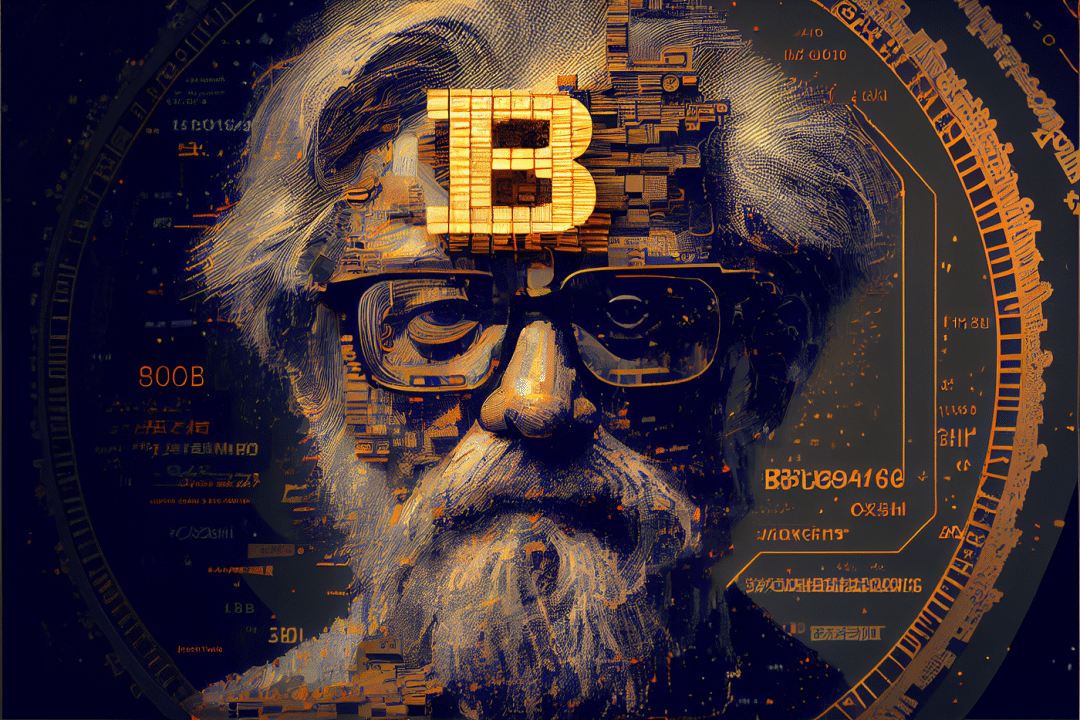In the world of digital currencies, the most enduring mystery is the identity of Satoshi Nakamoto, the elusive creator of Bitcoin. While numerous theories have surfaced, one stands out for its intriguing possibilities: the idea that Steve Jobs, the legendary co-founder of Apple Inc., might have been Satoshi Nakamoto.

The Genius Parallels
Steve Jobs was undeniably a visionary, someone who transformed entire industries with his innovative thinking and relentless pursuit of excellence. Similarly, Satoshi Nakamoto’s creation of Bitcoin and the underlying blockchain technology revolutionized the financial sector. The genius required to conceptualize and implement such groundbreaking technologies is rare, and Jobs had already demonstrated such brilliance with the Macintosh, iPhone, and iPad. Could it be that Bitcoin was another one of his revolutionary creations, kept under wraps for reasons only he knew?
Timing and Opportunity
The timeline of Bitcoin’s creation aligns suspiciously well with Jobs’s career trajectory. Bitcoin’s whitepaper was released in 2008, during a period when Jobs had returned to Apple and was not only revitalizing the company but also exploring new horizons. Despite his busy schedule, Jobs had always been known to work on secret projects, often surprising the world with his new innovations. It’s plausible that during this time, he could have developed Bitcoin as a side project, especially given his interest in disrupting traditional systems.
The Secrecy of Satoshi
Satoshi Nakamoto’s identity remains one of the best-kept secrets in modern history. Jobs, known for his penchant for secrecy and his ability to control information, would have been uniquely capable of maintaining such an enigma. His infamous tight-lipped approach to Apple’s product launches demonstrates his ability to keep significant projects under wraps until the perfect moment. Furthermore, the digital security measures required to maintain Satoshi’s anonymity would be well within the skill set of Apple’s security-conscious mastermind.
The Connection to Technology and Cryptography
Jobs had access to some of the brightest minds in technology and cryptography. Apple’s top engineers and cryptographers could have easily provided the expertise needed to develop Bitcoin’s sophisticated algorithms. Moreover, Jobs had a deep appreciation for the importance of privacy and security, both of which are foundational principles of Bitcoin. His vision for empowering individuals through technology could have naturally extended to creating a decentralized currency that challenged the traditional financial systems.
A Personal Mission
Jobs was known for his desire to leave a lasting impact on the world. Bitcoin’s potential to democratize finance and empower the unbanked aligns perfectly with Jobs’s legacy of creating user-centric, revolutionary products. Perhaps Jobs saw Bitcoin as the ultimate tool for liberation, a way to break free from the control of centralized financial institutions and governments. By launching Bitcoin under the pseudonym Satoshi Nakamoto, Jobs could have ensured that the focus remained on the technology and its potential, rather than his own celebrity status.
The Final Clue: Steve Jobs’s Passing
Steve Jobs passed away in October 2011, and intriguingly, around the same time, Satoshi Nakamoto’s activity significantly dwindled. While this could be a coincidence, the timing suggests a possible connection. If Jobs were Satoshi, his deteriorating health and eventual passing would explain the sudden silence and the lack of further contributions to the Bitcoin project.
Conclusion: A Legacy Beyond Apple?
While there is no definitive proof that Steve Jobs was Satoshi Nakamoto, the circumstantial evidence presents a tantalizing possibility. The parallels in their genius, the timeline, the ability to maintain secrecy, and the alignment of their missions create a compelling narrative. Whether or not Jobs was Satoshi, the mystery of Bitcoin’s creator continues to captivate and inspire the world, much like Steve Jobs’s own enduring legacy. Perhaps, in some cryptic, digital fashion, Jobs did achieve one final act of innovation, leaving behind a decentralized legacy that continues to reshape the world long after his passing.

